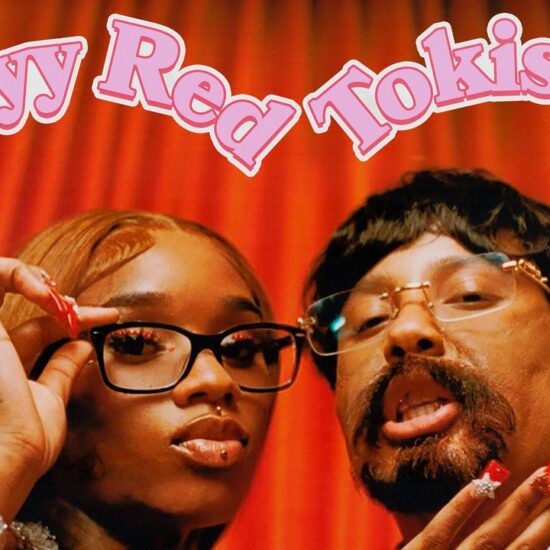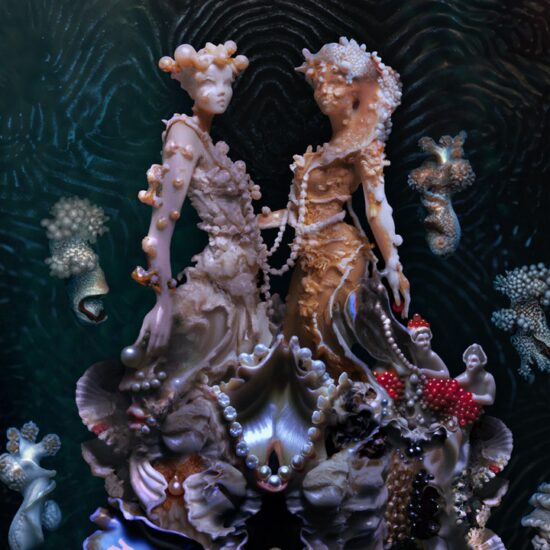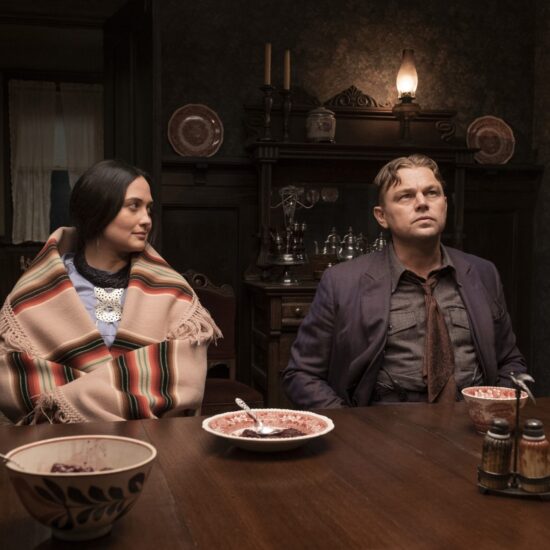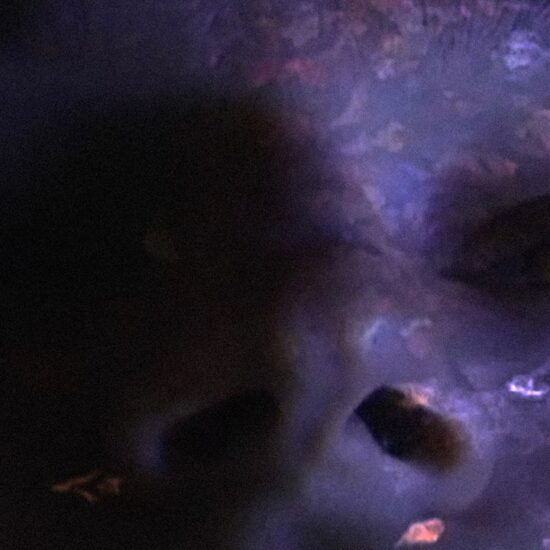It’s hard to remember any performer who been so on top of the world as Post Malone who has gone to such lengths to convince us he’s bottoming out as Malone does in “Twelve Carat Toothache,” his fourth album. It’s a common lyrical trope that success breeds discontentment, and Malone has already trod some of that territory — four years and two albums ago, he was telling us he was “Rich & Sad.” But that song almost seems like a feint compared to where he’s at now. “Toothache” finds him probably richer but definitely much, much more into the realm of self-loathing. So what’s a listener to think when leaps someone is making as a record-maker are in the service of songs about being on the skids?
“I was born, what a shame,” Malone sings in the opening track, “Reputation” — not the last time on the record he’ll pulls out what sounds like a Kurt Cobain throwaway line. At the very end of the album, his anticlimax is a demo-version reprise of the “Euthanasia,” which expresses the hope for a painless, if not easy, death. Considering these bookends, and some of the depressed thoughts that comes in-between, you can start to imagine a reason why Malone’s label allegedly delayed putting the album out (at least according to complains made by his team on social media many months back). Surely, someone thought, if enough time went by, his mood might brighten and he’d reconfigure the album with more bangers. Well, he is in a better place now, according to an interview that just aired with Zane Lowe, where the singer indicated he’s no longer in the dark place he was when he wrote some of these tracks. But any mood elevation didn’t send him back to the drawing board to retrofit his finished album with party songs.
Is “Twelve Carat Toothache” a good time, then?
That may seem ridiculous to ask, right after establishing the album’s bummed-out bona fides. But Posty is crafty enough to make sure the album doesn’t always sound as crashed-out and downcast as it mostly is. There are a couple of more upbeat numbers — especially “I Like You,” a very sprightly, downright Bieber-esque collaboration with Doja Cat — that do establish something that brings Malone at least temporary satisfaction: stealing someone else’s woman. And then there’s a song like “I Cannot Be,” which establishes a highly hooky level of glee despite being a breakup downer, in that classic pop tradition. His previously released duet with the Weeknd, “One Right Now,” is also kind of an ’80s bop, despite having a nasty/sad undercurrent that makes promiscuity-as-revenge sound like kind of a drag.
These “fun” songs pop up more like interludes than the main grist of the record, though. Amusingly, Post Malone is self-conscious enough about this whipsaw effect in the middle of the album that he even starts using subtitles to point it out. The full title of track 5 is “I Like You (A Happier Song),” immediately followed by track 6: “I Cannot Be (A Sadder Song).” By the time he’s moved on to “Insane,” “Love/Hate Letter to Alcohol” and “Euthanasia,” he’s dropped the subtitling gag: those song names speak for themselves.
In the end, what keeps the album engaging amid the despondency is the not entirely defatigable Posty persona itself… on top of his and chief collaborator Louis Bell’s underrated knack for strong, conversational melodies. Post Malone is — to put it in classical political terms — the kind of guy you want to have a beer with, even if that beer might be shared over breakfast and you could worry about becoming an alcoholic by nightfall. Yes, there’s that old saying about “when people tell you who they are, believe them,” and Malone is telling us on this album that he’s a materialistic polyamorist who needs an intervention right now. And maybe we are reading too much in if we imagine a sweet spirit to go along with all that. But there’s a least a refreshing honesty to his confessions that doesn’t involve as much lashing out as we see in some of his contemporaries’ records — his unprogressive views about women notwithstanding. Maybe we’re just programmed to always root for the guy who is hardest on himself before he’s tough on others… and Malone is definitely that, in this frequently self-lacerating album. When you have his talent for connecting, misery is going to attract company.
You have to admire, maybe perversely, his eagerness to start “Twelve Carat Toothache” off with its longest and least pleasant slog of a song. Some people will get stuck there. But with “Reputation,” Malone definitely lets listeners know the worst of what they’re in for. That aforementioned line about wishing he’d never been born reads a little funnier as the climax of a statement of purpose: “I was born to raise hell, I was born to take pills / I was born to chase mills, I was born to cave in / I was born to fuck hoes, I was born to fuck up / I was born, what a shame.” The closing line: “Let me choke on my cigarettes and heavy debt.” Here’s the one spot on the album where the AutoTune is really laid on thick to his vocals for that electro-yodel effect that’s kind of worn out its welcome. And have we mentioned yet that the accompaniment for this consists almost solely of somber piano chords? What a way to lay out the welcome mat.
That heaviness is followed by the most featherweight number on the album “Cooped Up,” a post-pandemic coming-out collaboration with Roddy Ricch that serves just to quickly establish that Malone will not completely be abandoning audience-friendliness. And just as quickly as the mood lift materialized, it’s gone again, as Malone plants the song “Lemon Tree,” a song about just how literally bitter has become. (He’s not generally subtle with the metaphors.) “Could you be a little less sour, we’re rottin’ by the hour / And my heart’s rotten too,” he affirms. Themes are established: the promise of death, and sleep deprivation, the latter of which comes up a lot. There may be no more heartfelt moment on the whole record than later, in “I Cannot Be,” when the line “I know that I ain’t perfect, but you so mean” is adjoined by: “Can I just sleep when I’m so fucking tired?” Honestly, it may be that he would benefit from CPAP more than AA.
Romanticism is not a hallmark of the record. In the sole example of complete good cheer here, “I Like You,” he’s making off with another guy’s girl. (The featured artist is happy to be poached: “Stole the pussy, you ain’t get sued for that,” Doja Cat affirms.) But a couple of songs later, in what may or may not count as his own answer song to that one, the doomier-sounding “Insane,” he’s trying to give her back. “She was classy, now she nasty / I’m a bachelor, I’m a bastard / Don’t believe me? You can ask her.” “One Right Now,” his hookup with the Weeknd, very much fits into the wheelhouse of what the latter artist has made a speciality in the past: squeeze a surprising amount of unwieldy decadence into what sounds on the surface like a simple, innocent pop chorus. “One Right Now” seemed destined to be a bigger hit than it turned out to be after it came out last fall, but in the end, “I broke my hand on the same wall that you told me that he fucked you on” may not be the kind of chorus hook that the whole world can relate to.
But Malone spends a lot more of the album being mad at the man in the mirror, or wanting to offer him the succor of a nice buzz that isn’t easily achieved. “Took another sip from my ash can,” he warbles in both versions of “Euthanasia,” suggesting that, when you’re down and out enough, the presence of a cigarette butt in a beer can is no reason not to finish it off. “Love/Hate Letter to Alcohol” is literally the most painful song on the record: Malone recounts getting in a drunken fight in which the other guy gets the best of him and knocks out some teeth, requiring a middle-of-the-night visit to a dentist for emergency work. (When your DDS’ unlisted number is on speed-dial, this may be a sign of something.) Having his indie-rock hero, Robin Pecknold of Fleet Foxes, in to co-write and lay down some heavenly vocal stacking on top of the existential-dental pain, for celestial effect, adds a strange level of irony.
He can crack a joke, as well as teeth: “Behold, a sober moment / Too short, and far between,” he sings in “Euthanasia.” “I should crack one open to celebrate bein’ clean.” Near the end of the album, the short and somewhat scary “Waiting for a Miracle” brings back that ominous solo piano from the opening song, as Malone begs someone to “just take the firearm from me.” This nod toward the impulse to self-annihilate is the very definition of a sobering thought.
Where is Post Malone at the end of an album that has had at least a few fans leaving comments on streaming sites like: “The sadness of this music makes me worry for him”? He plants some seeds along the way to indicate that he might be ready to move on from the darkness that permeates a lot of the album, the way he assured Zane Lowe he already has. The one track on the album that really counts as a love song, of sorts, the beat-less ballad “Wasting Angels,” has our anti-hero admitting, “I say your name when you’re not around /
When I’m drunk and my knees can’t pick me up,” and ends with a repeating a cappella chorus of: “I should listen to you now, if I never have.” It’s a weirdly, almost beautifully uplifting moment — but the fact that Malone has stuck it in the middle of the album and chose to go out on a demo about death doesn’t really establish a narrative about him landing in a good place.
“Twelve Carat Toothache” finally feels like a transitional album for one of pop’s biggest stars. (And we do mean pop, not hip-hop… he is down to zero rapping on this record, although he’s got a couple of his guests for that.) A transition to an even more unhealthy-sounding mindset? That may not be possible. Back to the more braggadocious music of the past? He sounds too self-realized, in his self-abnegation, for that. But with no small help from Bell, who’s the best kind of musical enabler, Malone’s turns of melodic phrase and aptitude for true confessions are making him a far more interesting artist than we could have guessed even a couple of albums ago. Imagine what he could do if he gets some sleep.














